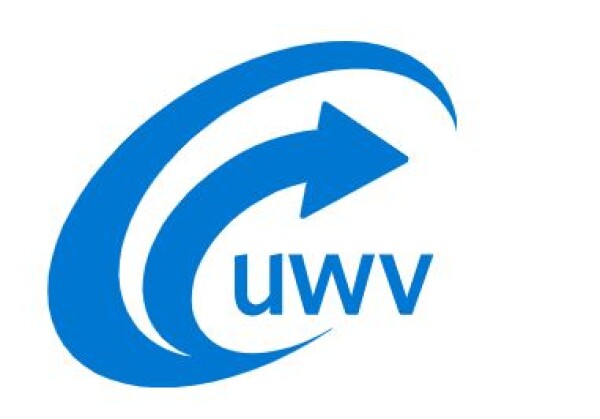Nieuwe verslaggevingsregels voor duurzaamheid moeten kwaliteit vergroten
Nieuws
What will change in sustainability reporting, now that the EU has published the CSRD?
On April the 22nd, the EU has published its long awaited revision of the NFRD (Non Financial Reporting Directive). One important change that was announced was that the directive is now called the CSRD, the Corporate Sustainability Reporting Directive. It highlights the importance of sustainability for the EU, and the ambition the EU has shown to reach the targets of the EU Green Deal. In this blog we will highlight some of the most important changes, and give our view on how companies can implement those changes in their reporting.
More companies in scope of CSRD
The NFRD applied to all listed companies and financial institutions, so called PIEs (public interest companies). The scope of the CSRD is expanded to all large companies. The threshold for the definition of what a large company is, is based on the following criteria:
- more than 250 employees,
- more than € 40 million revenu, and
- more than € 20 million balance sheet total.
If 2 out of 3 criteria are met, the company is considered large.
Rough estimations indicate that approximately 50.000 companies will fall under this definition, compared to 11.600 companies that were in scope under the NFRD. Companies with listed securities on EU regulated markets are in scope of the CSRD anyway, no matter their size. However, small and medium sized listed companies have three years extra to comply to the CSRD. A group that will need to start reporting on their sustainability performance are family owned businesses. Many of those companies are not yet used to public reporting and transparency, but if they meet the criteria for large companies, then they will need to start reporting as well. For companies who haven’t started with reporting on sustainability matters quick preparation, by means of understanding the implications of the CSRD for their reports and laying down a path to implementation is key. For companies who already issue an integrated report a detailed gap-analysis is needed, showing where improvements can be made.
Double materiality at the core; it’s all about impact!
The NFRD already introduced a requirement for companies to report both on how sustainability issues that affect their performance, position and development (the ‘outside-in’ perspective), and on their impact on people and the environment (the ‘inside-out’ perspective). This is often known as ‘double materiality’. Nevertheless, several studies showed that this concept was not implemented in the current reporting practice in the way it was meant. By giving more guidance on the definition of double materiality, the objective of the EU is that double materiality will be at the core of sustainability reporting in the near future. Double materiality means that all topics considered material from either a financial perspective (financial materiality or outside-in) or from an impact perspective (impact materiality or ‘inside-out') or both should be included in the sustainability reports.
Assurance of sustainability information will become mandatory
The review of the NFRD showed that the lack of common rules on sustainability reporting and its assurance hindered a level playing field for companies established in the different Member States. Significant differences in requirements for sustainability reporting and assurance between Member States created additional costs and complexity for companies operating across borders. The CSRD requires all companies within the scope to seek limited assurance for reported sustainability information, while including an option to move towards a reasonable assurance requirement at a later stage. It is possible to have an opinion on sustainability reporting from an independent assurance services provider other than the statutory auditor. In this case this opinion should be published together with the annual financial statements and management report. Since many companies do not seek limited assurance on their sustainability information at the moment, this rule will have a big impact on companies; with clear governance around sustainability information, ensuring the reliability of the information with checks and balances, and a transparent audit trail.
More detailed specifications on what information to disclose
Under the NFRD there was very limited guidance provided to companies on what information they should disclose, leaving it up to the company to decide what topics should be considered material, and what not. In the CSRD the EU has provided a more detailed list of information that should be reported on, including:
A brief description of the company’s business model and strategy, including:
- The resilience of the business model and strategy to risks related to sustainability matters
- The opportunities for the company related to sustainability matters
- The plans of the company to ensure that its business model and strategy are compatible with the transition to a sustainable economy and with the limiting global warming to 1.5 C in line with the Paris agreement
- How the company’s business model and strategy take account of the interest of the company’s stakeholders and of the impacts of the company on sustainability matters
- How the strategy has been implemented with regard to sustainability matters
A description of the targets related to sustainability matters and of the progress the company has made towards achieving those targets
A description of the role of the administrative, management and supervisory bodies with regard to sustainability matters (meaning the governance within the company)
A description of the company’s policies in relation to sustainability matters
A description of:
- the due diligence process implemented with regard to sustainability matters
- the principal actual or potential adverse impacts connected with the undertakings value chain, including its own operations, its products and services, its business relationships and its supply chain
- any actions taken, and its results, to prevent, mitigate or remediate actual or potential adverse impacts
A description of the principal risks to the company related to sustainability matters, including the company’s principal dependencies on such matters, and how the company manages those risks
Indicators relevant to the disclosures referred to in the points above
The company shall also disclose information on intangibles, including information on intellectual, human, and social and relationship capital, as well as information on the process carried out to identify material topics. Disclosures shall contain forward looking and retrospective information, and qualitative and quantitative information.
Value chain approach
Where appropriate, information shall not only include the company’s own operations, but also the company’s value chain, including its products and services, its business relationships, and its supply chain. There is a growing awareness that the responsibility of a company reaches further then its own operations, and that negative impacts in the value chain should be of concern of the board of the company as well. The COVID-19 pandemic has accelerated this awareness, as it has shown the vulnerabilities of workers and of companies’ value chains. Therefore, information on environmental impacts is also relevant in the context of mitigating future pandemics with human disturbance of ecosystems increasingly linked to the occurrence and spread of diseases.
More detailed sustainability reporting standards to come
With the draft CSRD the EU presented the principles and foundations for sustainability reporting, and should be complemented by EU sustainability reporting standards, to be developed by the European Financial Reporting Advisory Group (EFRAG) The standards will be tailored to EU policies, while building on and contributing to international standardization initiatives, like the GRI and The Value reporting Foundation (IIRC and SASB). The first set of standards would be adopted by October 2022.
One integrated report, electronically accessible
To ensure the accessibility of sustainability information companies shall include their sustainability information in the management report, and not in separate sustainability reports. The EU also wants companies to report in an electronic way, to allow for the inclusion of the reported sustainability information in the European single access point. Companies should publish the duly approved annual financial statements and the management report in a prescribed electronic format, and ensure that management reports containing sustainability reporting are made available, without delay following their publication, to the relevant officially appointed mechanism. Member states will no longer be allowed to make exemptions to this rule.























